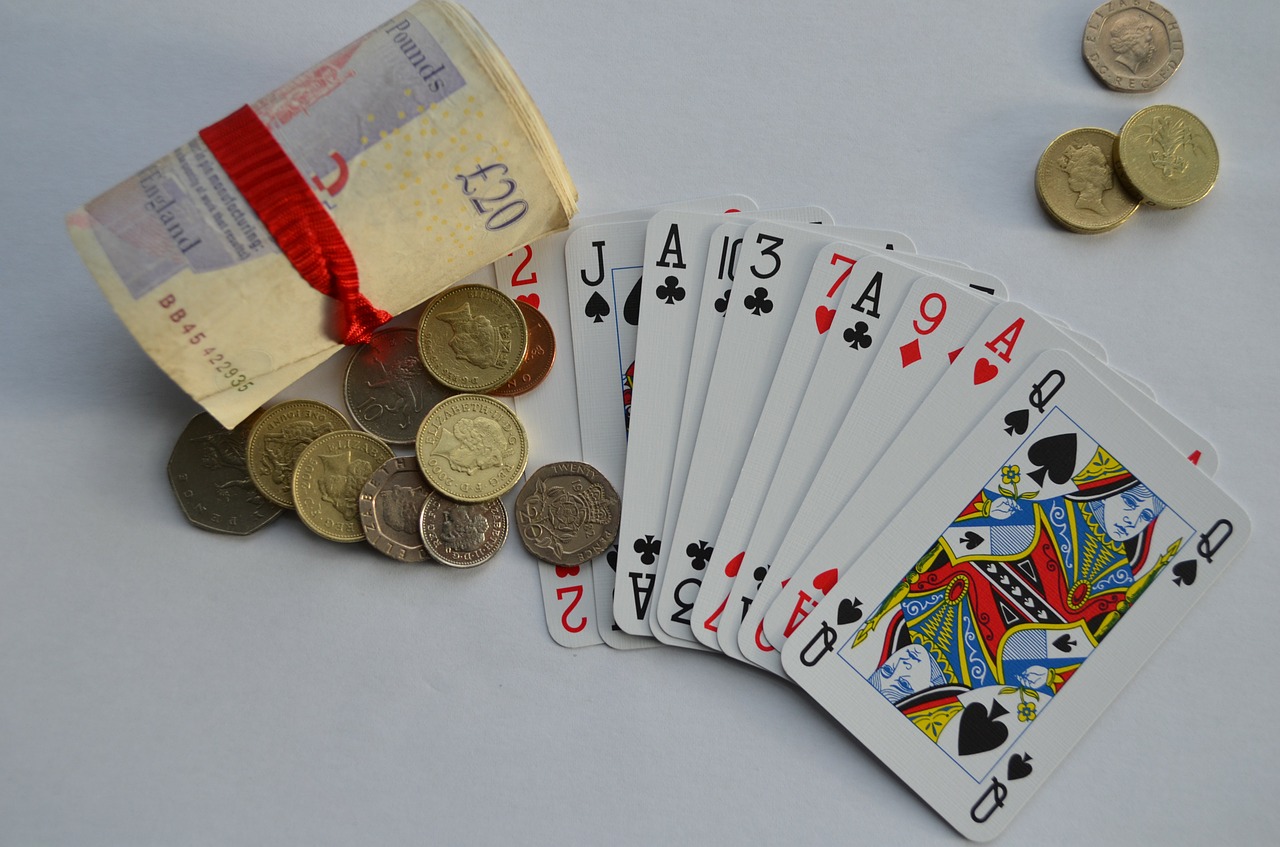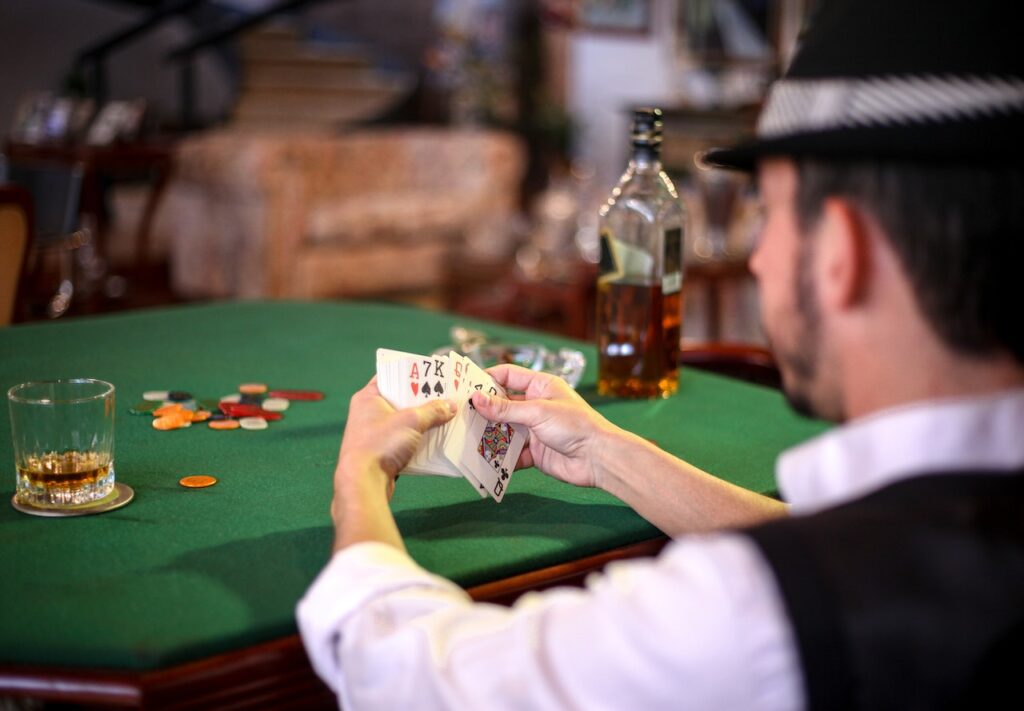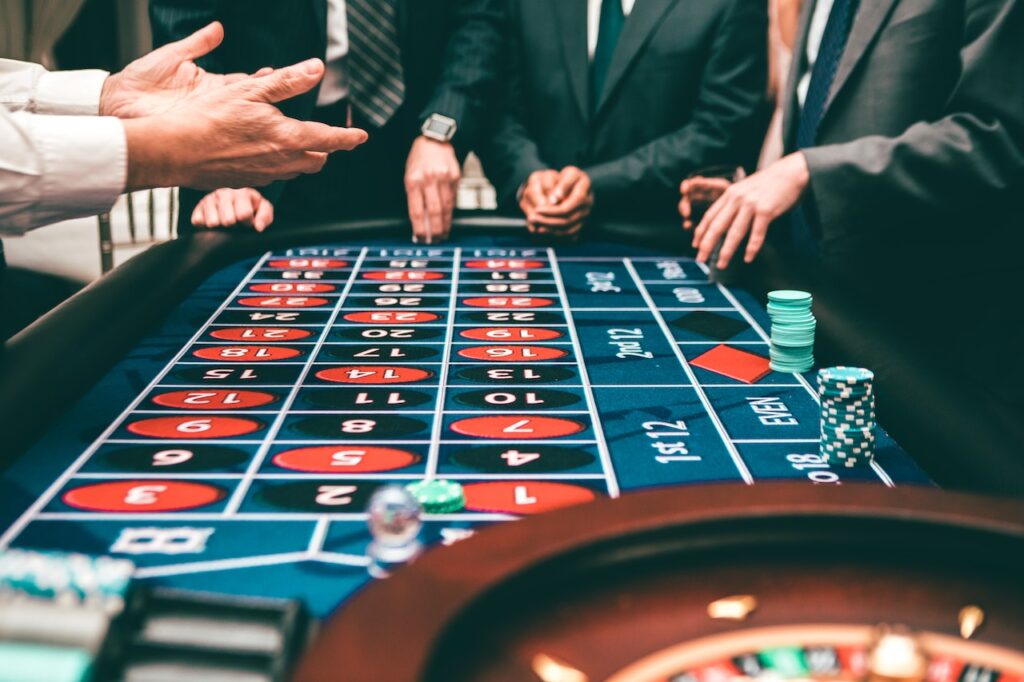Introductory paragraph:
In the high-stakes world of poker, maintaining a calm and composed mindset is paramount to success. However, the pressure and intensity of the game can often lead to a state of tilt, where emotions run high and rational decision-making becomes impaired. Understanding how tilt and emotions impact poker performance is crucial for players looking to enhance their skills and achieve consistent results. This article explores the psychological phenomenon of tilt, the influence of emotions on poker outcomes, and provides strategies and techniques for managing tilt and staying emotionally balanced during poker sessions. By mastering the art of staying calm under pressure, players can elevate their game and maximize their chances of success at the poker table.
1. Understanding Tilt: The Psychological Phenomenon
1.1 Definition and Origins of Tilt
Tilt: the ultimate nemesis of every poker player. But what exactly is tilt? It’s not just a wobbly table, although those can be frustrating too. Tilt refers to a state of emotional distress and irrational decision-making that can occur during a poker session.
Origins of Tilt: Tilt can creep up on you like a sneaky little gremlin. It often stems from a series of bad beats, unlucky hands, or even personal frustrations bleeding into your game. Essentially, anything that throws you off your game and turns you into a raging bull of ill-advised moves can be considered tilt’s evil mastermind.
1.2 The Role of Tilt in Poker
Tilt is like that obnoxious relative who always manages to ruin family gatherings – it can single-handedly torpedo your poker performance. When you’re in tilt mode, you’re no longer making rational decisions based on strategy and analysis. Instead, you’re throwing caution to the wind and making impulsive moves that would make even the most reckless gambler raise an eyebrow.
Tilt is the enemy of cool and calculated decision-making. It makes you lose sight of the bigger picture, clouding your judgment with emotions and irrationality. To succeed in poker, you must recognize and manage tilt like a seasoned poker pro.
2. The Impact of Emotions on Poker Performance
2.1 Emotions and Decision-Making in Poker
Emotions and poker go hand in hand, like a royal flush and a victory dance. But not all emotions are created equal when it comes to making smart decisions at the table. Positive emotions, like confidence and excitement, can enhance your gameplay and keep you motivated. However, negative emotions, such as anger, frustration, or fear, can be a one-way ticket to tilt city.
When emotions take the wheel, logic and reason often get kicked to the curb. In poker, decisions should be based on careful analysis of the game, not impulsive reactions fueled by anger or desperation. So, next time you feel the rage boiling within, take a moment to channel your inner Zen master and regain control of your emotions.
2.2 How Emotions Affect Focus and Concentration
Picture this: you’re deep in thought, contemplating your next move, and suddenly your mind is hijacked by a whirlwind of emotions. Your focus crumbles, concentration goes out the window, and you’re left feeling as scattered as a deck of cards after a magician’s trick.
Emotions can be distracting little devils, causing you to lose sight of what matters most – the game. Maintaining focus and concentration is crucial for success in poker. By learning to navigate and manage your emotions, you can keep your head in the game and make those calculated decisions that lead to triumph.
3. Recognizing Early Signs of Tilt and Emotional Distress
3.1 Physical and Behavioral Indicators of Tilt
Tilt isn’t just a mind game; it often manifests in physical and behavioral signs that act as red flags. These signs include rapid breathing, clenched fists, excessive sweating, or even tossing your chips around like you’re auditioning for a circus act.
Additionally, paying attention to behavioral cues is essential. Are you becoming more aggressive, taking unnecessary risks, or engaging in verbal outbursts? These are all signs that tilt may be lurking around the corner, ready to pounce on your poker performance.
3.2 Identifying Emotional Triggers in Poker
Just like a magician revealing their tricks, understanding what triggers your emotions in poker can be a game-changer. It could be an opponent’s smirk, a bad beat, or even an annoying comment in the chat box. By identifying these emotional triggers, you can anticipate and prepare for the emotional roller coaster that poker often becomes.
Knowing your triggers gives you a fighting chance against tilt. So, take a deep breath, count to ten, and remember that losing your cool won’t make you a winner in the long run.
4. Strategies to Stay Calm and Composed during Poker Sessions
4.1 Breathing Techniques for Relaxation and Stress Reduction
Breathing: it’s the one thing you’ve been managing to do non-stop since birth. But did you know that it can also be a powerful tool for relaxation and stress reduction in poker? By taking slow, deep breaths, you can activate your body’s natural calming response and silence that inner tilt monster.
So, the next time you feel the pressure building, close your eyes, inhale deeply, and exhale all that poker-induced stress. Picture yourself as a serene poker guru, floating above the table, untouchable by tilt’s relentless grip.
4.2 Practicing Mindfulness in Poker
Ah, mindfulness – the art of being fully present and aware of the moment. In poker, mindfulness can be your secret weapon against tilt. By focusing on the current hand, the cards, and the players around you, you can block out distractions and keep your emotions in check.
Take a moment before each hand to ground yourself in the present. Feel the weight of the chips in your hand, hear the shuffling of cards, and let go of any lingering thoughts that might lead you down the treacherous path of tilt. Embrace the power of now and watch your poker game flourish.
4.3 Engaging in Positive Self-Talk and Visualization
Imagine your mind as a locker room coach, cheering you on and reminding you of your poker prowess. Positive self-talk and visualization can be mighty tools in your arsenal against tilt. Instead of berating yourself for a bad hand, focus on positive affirmations like “I am a skilled player capable of making smart decisions.”
Visualize success in your mind’s eye – picture yourself calmly making smart moves, raking in chips, and outsmarting your opponents. By rewiring your thoughts and visualizing positive outcomes, you can pave the way for a cooler, more composed poker persona.
So, the next time tilt threatens to sabotage your poker dreams, remember: stay calm, embrace your inner Zen, and let your poker skills shine through. After all, a cool head will always trump a raging tilt monster.
5. Practicing Emotional Regulation Techniques for Optimal Performance
5.1 The Importance of Emotional Regulation in Poker
Let’s face it, poker can be a rollercoaster of emotions. One moment you’re riding high on a winning streak, and the next, you’re staring at a devastating loss. While it’s natural to feel a range of emotions during gameplay, mastering the art of emotional regulation is crucial for maintaining optimal performance at the poker table.
When you let your emotions get the best of you, it’s easy to make impulsive decisions based on frustration, anger, or disappointment. Learning to regulate your emotions allows you to remain calm, think clearly, and make rational choices even in high-pressure situations.
5.2 Developing Emotional Awareness and Self-Control
Emotional awareness is the first step to mastering emotional regulation. Pay attention to your feelings as you play poker and try to identify any patterns or triggers that lead to undesirable emotional reactions. Maybe you feel a surge of anxiety whenever you’re dealt a weak hand, or perhaps you get easily frustrated when facing an aggressive opponent.
Once you’re aware of your emotional triggers, you can start developing self-control techniques to manage them. Deep breathing exercises, taking a short break to clear your mind, or repeating positive affirmations can help bring your emotions under control. Experiment with different strategies and find what works best for you.
6. Building Mental Resilience to Handle Pressure in Poker
6.1 Building Confidence and Self-Efficacy
Confidence plays a significant role in staying calm under pressure. The more confident you feel in your skills and decision-making abilities, the better equipped you’ll be to handle the ups and downs of poker. Building confidence takes time and practice.
Start by setting achievable goals and tracking your progress. Celebrate your successes, no matter how small, to boost your confidence. Additionally, surrounding yourself with a supportive network of friends or fellow poker players can provide the encouragement and validation needed to build self-efficacy.
6.2 Resilience Strategies for Bouncing Back from Setbacks
In poker, setbacks are inevitable. It’s how you handle them that sets you apart. Developing resilience is about bouncing back from losses and setbacks with a positive mindset.
One effective strategy is reframing setbacks as learning opportunities. Instead of dwelling on a bad beat, focus on what you can learn from the experience and how you can improve your game. Embrace a growth mindset that views challenges as stepping stones to success.
Remember, just because you lose a hand doesn’t mean you’re not a skilled player. Stay resilient and remain focused on the long-term game.
7. Seeking Support: Utilizing Resources to Manage Tilt and Emotions
7.1 Seeking Professional Help for Persistent Emotional Challenges
Sometimes, despite our best efforts, managing tilt and emotions can become a persistent struggle. In such cases, seeking professional help can be immensely beneficial. A therapist or counselor specializing in performance psychology can provide valuable insights and techniques to help you navigate your emotional challenges.
Don’t hesitate to reach out for help when needed. Seeking professional guidance is a sign of strength and a commitment to your personal development.
7.2 Utilizing Online Communities and Support Groups
In addition to professional help, online communities and support groups can offer a sense of camaraderie and understanding. Connecting with fellow poker players who have faced or are facing similar emotional challenges can provide a space for sharing experiences, exchanging strategies, and offering support.
Online forums, social media groups, or dedicated poker communities can be excellent resources to find like-minded individuals who understand the unique emotional demands of the game. Remember, you’re not alone in this journey!
8. Developing a Long-Term Approach to Maintaining Emotional Balance in Poker
8.1 Integrating Emotional Management into Poker Practice
To achieve long-term emotional balance in poker, it’s essential to integrate emotional management techniques into your practice routine. Treat emotional regulation as a skill to be honed, just like your poker strategies. Set aside time for mindfulness exercises, visualization, or other techniques that help you stay centered and focused.
By consistently incorporating emotional management into your poker practice, you’ll strengthen your ability to remain calm and collected during high-pressure situations.
8.2 Embracing a Healthy Lifestyle for Emotional Well-being
Lastly, don’t underestimate the impact of a healthy lifestyle on your emotional well-being. Engaging in regular physical exercise, getting enough sleep, and maintaining a balanced diet can significantly contribute to your emotional stability.
Take breaks from poker to engage in activities that bring you joy and help you relax. Whether it’s spending time with loved ones, pursuing hobbies, or enjoying the outdoors, finding balance outside of the game can have a positive influence on your emotional state.
Remember, poker is a game, and while emotions are a natural part of it, managing them effectively will greatly enhance your overall experience and performance at the table. So, take a deep breath, keep a poker face, and know that staying calm under pressure is within your grasp.In conclusion, mastering the art of staying calm under pressure and managing tilt and emotions is an essential skill for any poker player. By understanding and recognizing the early signs of tilt, implementing effective strategies for emotional regulation, and building mental resilience, players can maintain focus, make rational decisions, and ultimately improve their overall performance at the poker table. Remember, poker is not just a game of cards, but also a game of mental fortitude. With practice and dedication, it is possible to stay in control of your emotions and achieve long-term success in the exciting world of poker.
FAQ
1. What is tilt in poker?
Tilt in poker refers to a state of emotional distress or frustration that impairs a player’s decision-making abilities. It often occurs when a player experiences a significant loss or a series of bad beats, leading to irrational and impulsive actions that can negatively impact their performance.
2. How can I recognize if I am tilting during a poker session?
Recognizing tilt requires self-awareness. Look out for physical and behavioral indicators such as increased heart rate, impatience, excessive aggression, or a tendency to make reckless decisions. It’s important to be mindful of your emotions and assess whether they are influencing your gameplay.
3. Can emotional regulation techniques really help in managing tilt?
Yes, emotional regulation techniques can be highly effective in managing tilt. Techniques such as deep breathing, mindfulness, and positive self-talk can help reduce stress and restore a sense of calm and focus. By practicing these techniques regularly, you can develop greater emotional control and improve your overall poker performance.
4. Are there any resources available for support in managing tilt and emotions?
Absolutely. Online communities, forums, and support groups provide platforms for poker players to discuss and seek advice on managing tilt and emotions. Additionally, seeking professional help from therapists or sports psychologists who specialize in poker can offer valuable guidance in developing effective strategies for emotional management.







Facebook Comments